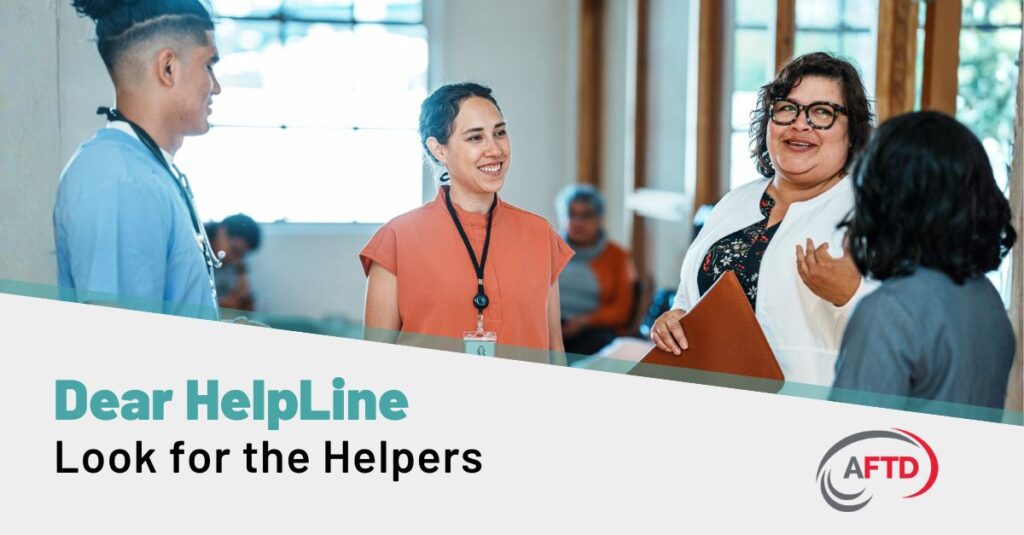Tenacious AFTD Advocacy Gaining Momentum
With 2025’s FTD Awareness Week now behind us, AFTD’s Advocacy team is already gearing up its efforts for next year and beyond. The goal: to have official recognition of FTD Awareness Week in all 50 states. Momentum is strong and building, with resolutions and proclamations in 34 states now on the books. Resolutions and proclamations…
Read MoreAlector Clinical Trial Results Townhall
On October 21, 2025, results from Alector Therapeutics’ Phase 3 clinical trial for Latozinemab (AL001) were announced. This intervention, designed for people with FTD caused by variants in the GRN gene, did not have an impact on clinical symptoms nor on a number of other endpoints. We know many people have questions and concerns about…
Read MoreDear Helpline: Look For the Helpers
Dear HelpLine, I’m caring for my husband who was diagnosed with FTD two years ago. Some days I feel like I’m doing okay, and others, I just feel lost and exhausted. The changes in his behavior are hard to manage, and I’m scared I’m not doing enough. You’re not alone in feeling this way. Caring…
Read MoreThe New York FTD Registry: How Advocacy Drives Change
The International Business Times UK recently drew an important connection between FTD advocacy efforts and the new FTD Registry recently voted into law in New York state. The passage of New York’s registry law represents a significant victory shaped by advocacy voices both prominent and low-profile, united by their experience with FTD. Sen. Michelle Hinchey…
Read MoreAFTD and ADDF Award $2.5 million to Vesper Biotechnology for Drug VES001 Clinical Trial in FTD
The Association for Frontotemporal Degeneration (AFTD) and the Alzheimer’s Drug Discovery Foundation (ADDF) recently awarded $2.5 million as part of their shared funding opportunity called the Treat FTD Fund to Danish biotechnology company Vesper Bio for testing their drug VES001 in people who have variants in the progranulin gene (GRN), connected with FTD. Treat FTD Grant Comes Amid Positive News from VES001…
Read MoreAFTD Ambassador and “Protective Mama Bear” Dawn Kirby Interviewed on Podcast
Dawn Kirby’s daughter Kara was diagnosed with FTD at age 29. In a recent episode of the podcast For Their Thoughts, she shared her experience as a mother fighting for her daughter, her evolution as an FTD advocate and her work with AFTD, and the importance of community support, perspective and education. The journey to…
Read More






